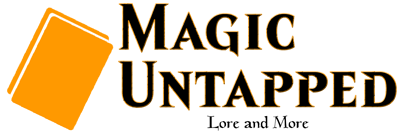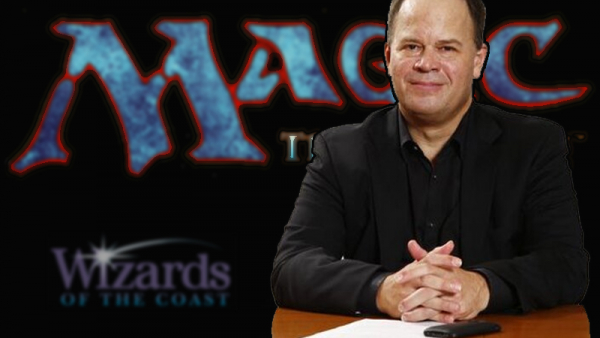Wizards of the Coast bans key cards across multiple formats while Modern welcomes the return of other previously-banned cards.
In the latest card ban/un-ban announcement for Magic: The Gathering, Wizards of the Coast made substantial changes to four of the game's formats: Pioneer, Explorer, Legacy, and Modern.
In Pioneer, the popular companion card, Jegantha, the Wellspring, has been banned for (in short) hurting the format's deck diversity.
"Jegantha is played in many Pioneer decks, appearing as a companion for most decks that can cast it and don't have key cards that violate its companion restriction," comments WotC R&D member Arya Karamchandani. "The value of having access to an extra card in games where resources are tight means most decks that can play Jegantha do, regardless of how it fits into their strategy."
As with the Pioneer format, the MTG - Arena Explorer format also sees Jegantha, the Wellspring being banned for pretty much the same exact reason.
Legacy saw a pair of powerful cards banned in the format: Psychic Frog and Vexing Bauble.
Psychic Frog was hit with the ban hammer due to (in short) being much too efficient a card for the format thanks to it allowing for the range of Dimir-colored reanimator and control deck variants to lack diversity and variation.
"Psychic Frog is strong enough to prevent folks from exploring adding white, red, or green to these blue-based tempo decks," says Magic designer Dan Musser. "To increase the diversity among existing archetypes while not completely removing them from the format, Psychic Frog is banned."
As for Vexing Bauble, once a popular and powerful sideboard card, it's found its way into Legacy main decks that Wizards of the Coast found detrimental to the format.
"With a concerning win rate among decks that include multiple main-deck copies of Vexing Bauble and its inherent strength against a pillar of the format, it has been banned in Legacy," stated Musser.
Modern was the format with the most striking changes as it received three card bans: The One Ring, Amped Raptor, and Jegantha, the Wellspring.
The latter card, Jegantha, was for very similar reasons as for its banning in Pioneer and Explorer as it was felt that the card too greatly reduced the pool of options a deckbuilder might consider when constructing a deck, thus resulting in a less-diverse format.
Amped Raptor got the axe as a means to knock W/R Boros Energy decks down a peg.
"Amped Raptor allows for some of the deck's most explosive starts, acting as an energy enabler and a payoff, and often amounting to an extra one to four mana in the early turns of the game," states MTG developer Dan Musser. "So, Amped Raptor is banned in Modern."
As for The One Ring, the marquee card of the set The Lord of the Rings: Tales of Middle Earth and an extremely popular and strong inclusion in decks across all formats in which the card can be played, it simply boils down to just how large a part of the Modern metagame the card has been since its introduction a year and a half ago as well as the multiple ways a player has to abuse it.
"The opportunity cost of including The One Ring in nearly any deck is too low, and its presence in events has become tiresome for many players," comments Musser. "Acting as a tool for self-preservation and a source of card advantage, it requires no commitment to any particular color. We believe it is clear, as it has been for many of you, that Modern would be a more enjoyable format without its inclusion. And thus, The One Ring is banned in Modern."
Modern also saw four cards un-banned: Mox Opal, Splinter Twin, Faithless Looting, and Green Sun's Zenith.
Of those, Splinter Twin has been a favorite amongst Magic players for an un-ban in the format after it was banned in 2016. WotC says they decided to un-ban the card because answers for it now exist that didn't in 2016.
"Solitude, Force of Negation, Force of Vigor, and Flare of Denial have all seen competitive Modern play, and each of them can solve the play patterns that Twin decks once exhibited," explains Musser.
As for the collectible card game's other formats, there's little to report in the way of cards that WotC is keeping an eye on. In fact, they say that they're overall happy with the health of those formats -- especially Standard at the moment.
"There's a ton to explore with Standard, and no matter your play preference, there's something for you to sleeve up and battle," Musser says. "We're very happy with the state of Standard."









